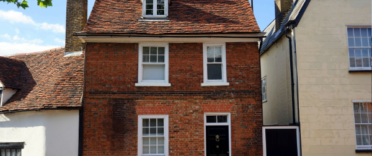My wife and I jointly own our house.When I die first my share of assets go to the wife, say £300,000. When she dies the total assets could be £600,000. Would those inheriting e.g. son have to pay inheritance tax (IHT)?
My response:
First of all there are three ways in which to own your home
- sole tenancy - where you personally own the home 100 per cent
- joint tenancy - you own the home jointly and equally with one or more people and your share passes automatically to the other joint owners
- tenants in common - you own a property with one or more people but each share doesn't have to be equal and you can give away your share however you want to
Most married couples own their home as joint tenants (as it sounds that you do). I only mention tenants in common as it used to be a popular way of passing assets on (effeciently for Inheritance tax purposes ) before it was possible to inherit your spouse's IHT nil-rate band (currently £325,000).
Assuming that all your assets (including your share of the house under joint tenancy) passes to your wife the transfer will be free from IHT. Inter- spouse transfers do not attract an IHT charge. In this instance, assuming you've not made any gifts or chargeable lifetime transfers, your wife would inherit your unused IHT nil rate band which could also be offset against the value of her estate when she dies.
Your wife actually inherits the percentage of your unused IHT nil rate band not a monetary amount. So if you were to die now and, as you state, your wife also died leaving £600,000 to your son then there would not be any IHT liability (assuming no any gifts or chargeable lifetime transfers were made in the 7 years prior to either death).
That's because the value of your wife's estate £600,000 would be less then the combined £650,000 nil rate band (i.e. two £325,000 IHT nil rate bands)
Obviously if the IHT nil rate band increases from the current level of £325,000 (which is the figure for tax year 2011/12) before your wife dies then her estate would effectively be able to offset twice the new higher nil rate band against her estate
As an aside, any IHT on the value of the estate is usually paid from the estate assets.
I hope that helps
Best Wishes
Damien
Money to the Masses
Website: www.moneytothemasses.com
The material in any email, the Money to the Masses website, associated pages / channels / accounts and any other correspondence are for general information only and do not constitute investment, tax, legal or other form of advice. You should not rely on this information to make (or refrain from making) any decisions. Always obtain independent, professional advice for your own particular situation. See full Terms & Conditions and Privacy Policy





